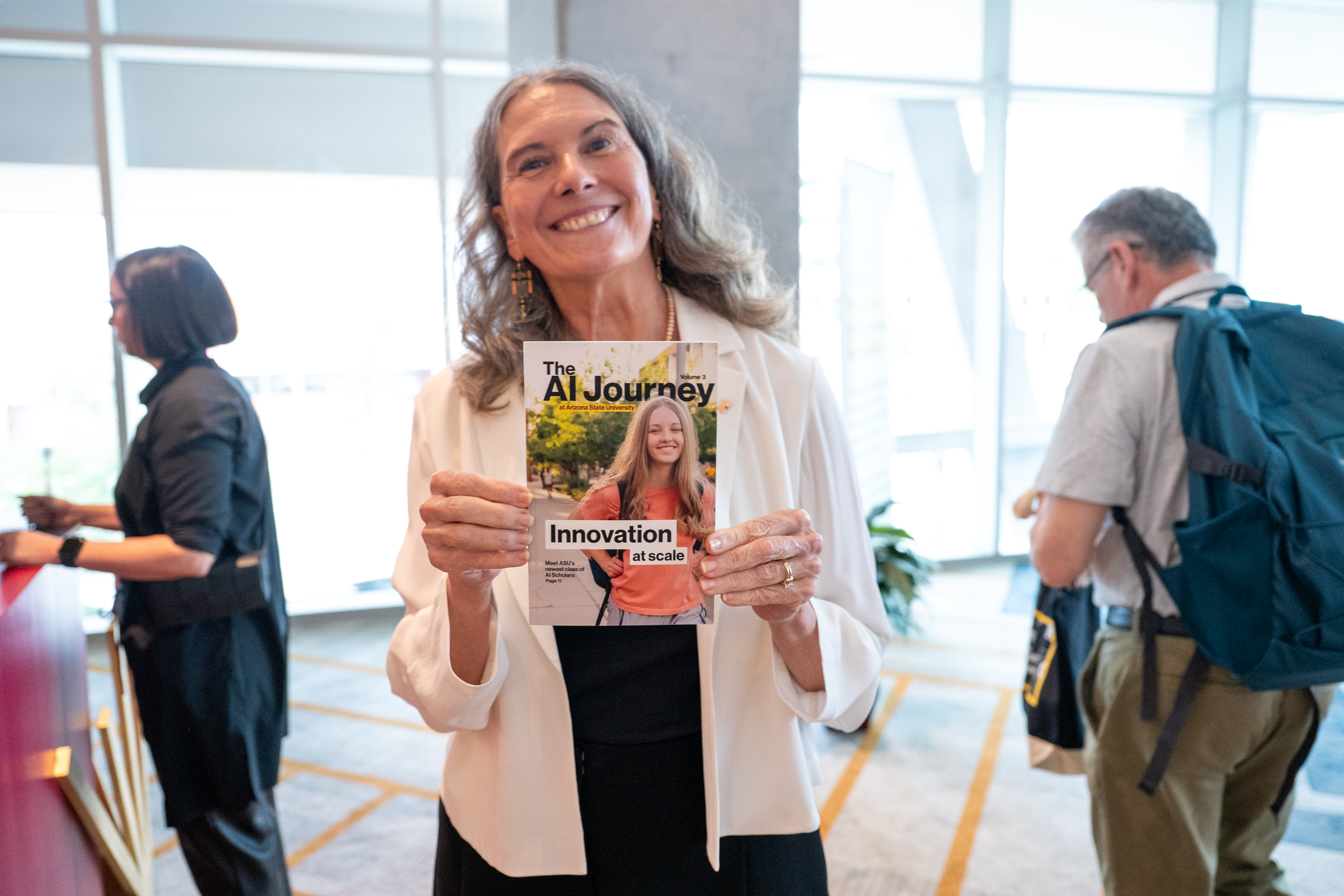Tackling real-world challenges
LEI also offers a unique grant program that empowers interdisciplinary teams to use ASU’s CreateAI Builder — the university’s generative AI toolkit — to design transformative solutions to real educational challenges.
To date, 18 projects across two cohorts have been awarded, spanning a range of applications, from game-based simulations to conversational AI tools that assist educators in navigating complex classroom situations.
The first cohort of projects awarded addressed broader issues in education. The Refugee Policy Game, developed by an interdisciplinary team of faculty that includes Adnan Turan and Janel White-Taylor. The AI-enhanced simulations replicate real-world challenges faced by refugees in educational settings, allowing users to consider policies from the perspective of marginalized communities.
The second cohort of awarded projects, launched in October 2025, includes the Corrective Feedback Chatbot, produced by Bryan Smith, Jinjing Zhao and Emilia Gracia. This AI experience offers corrective feedback to second-language learners, helping them improve their oral language development.
On the horizon: Multi-agent
Another ambitious development is ReQUESTA, an academic question generator that uses a multi-agent framework. Created in partnership between the LEI and Enterprise Technology, ReQUESTA is currently being integrated into CreateAI Builder to help faculty generate and refine multiple-choice questions for exams.
In the future, students will be able to use it to practice active learning by answering questions aligned with course material. The system employs modular multi-agent architecture, text-aware planning and alignment, and cognitive depth and diversity to ensure questions accurately reflect the original teaching content.
For McNamara, these projects exemplify the spirit of learning engineering — creativity, experimentation and collaboration. “It allows our faculty and staff to be creative and to design educational solutions that put principled innovation into practice.”

